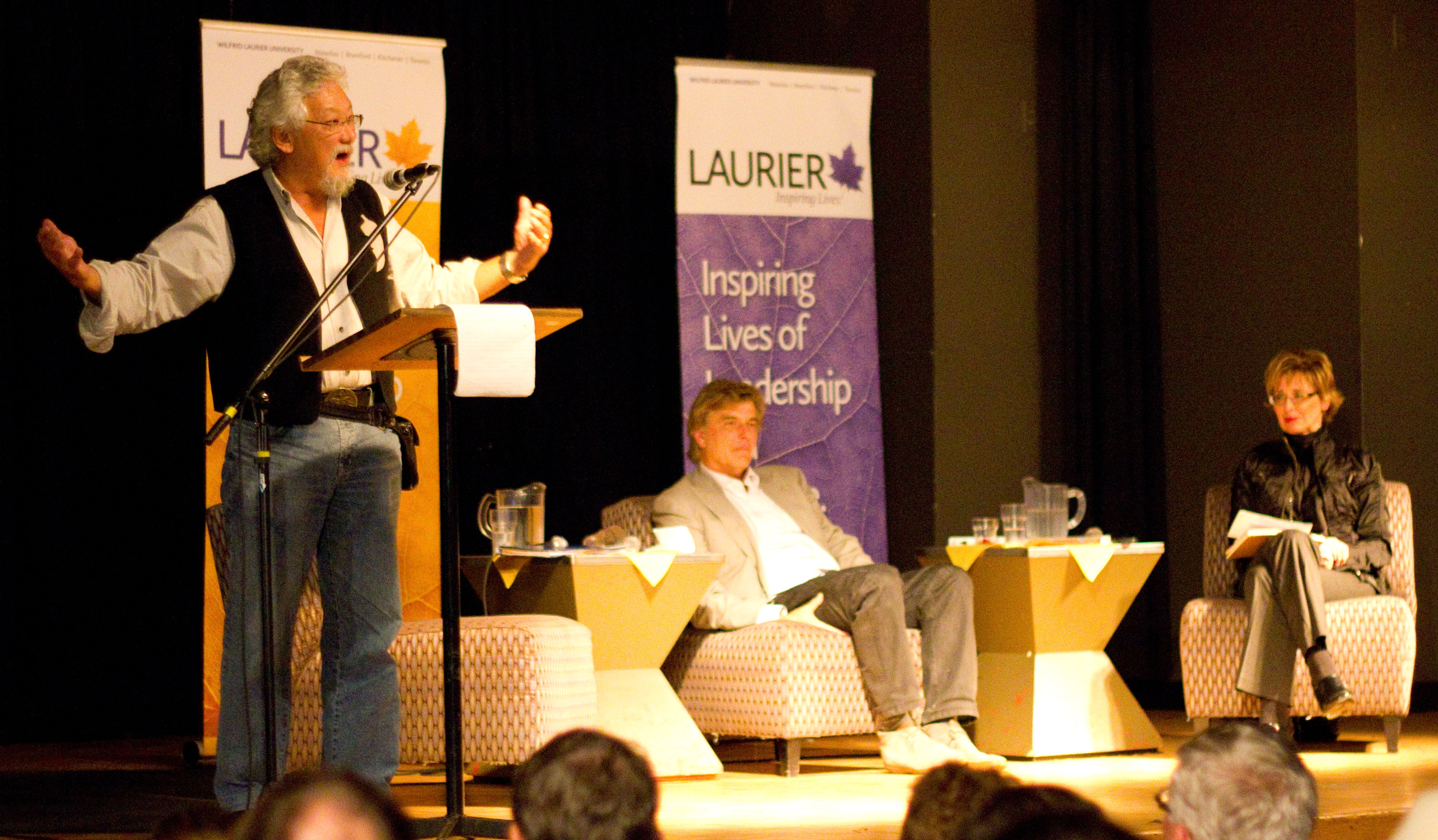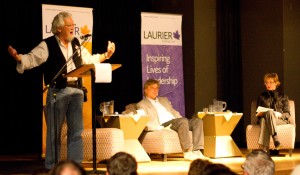The ‘eco’ in economy


On Oct. 17, Jeff Rubin and David Suzuki brought their Eco Tour to Wilfrid Laurier University. Their presentation, titled “End of Growth: How to Achieve a Truly Sustainable Future” discussed how the potential end of our current economy can re-boot our relationship with nature and make the world more green.
While Rubin began by explaining that natural resources, such as oil, are needed to keep the economy from faltering, Suzuki stressed that the economy has taken over our lives in an unnatural way and that humans need to be giving just as much attention to the environment.
“Every major global recession, over the last 40 years, has had oil’s finger prints all over it,” Rubin began. “No matter how you move goods around the world, you’re burning one fuel, and one fuel only, and that fuel is oil, and that’s because it packs about four times the energy density of natural gas.”
Because we rely so heavily on oil, it indirectly dictates the economy and society as a whole.
“The higher the price [of oil], the more of it will be supplied … we need very high oil prices to raise oil out of the ground,” he explained. “[But] we can no longer afford to burn what’s coming out of the ground.”
While higher oil prices mean more to consume, we can no longer afford to buy oil, which results in a vicious cycle of oil-based recessions.
However, when this happens and the economy suffers, as Rubin pointed out, environmental issues are largely ignored.
“Every time the economy weakens, environmental issues get shunted to the back seat,” he stated. “Perhaps we are getting messages that nature is telling us that something is wrong … there is an element of great hope.”
And it was this element of hope that Suzuki began his lecture with.
“I’ve never taken a course on economics, I just use common sense,” Suzuki immediately told the audience.
He continued by explaining the frustrations of ecologists because economists tend to shrug them off for being too “radical.”
However, as Suzuki explained, ecologists try to determine the laws that a species has to follow in able to flourish, whereas economists are supposed to maintain the domain in which those species live.
“The economy is just a means to something else … this is madness,” he exclaimed. “Now that the economy has come to what I hope is the end, we better ask ‘what do we have an economy for?’”
Suzuki then explained that the overpopulation of the Earth has resulted in a global economy that is too occupied with consumption, which has resulted in a massive ecological footprint.
“We have become a new kind of force on this planet; our species is altering the physical, chemical and biological properties of the planet,” he said. “We are animals, we are like any other critter, [but] a lot of people don’t like to be told this.”
The emphasis of the talk then switched to humans re-evaluating what the most important things in life are: the economy or nature?
“The challenge today is to take the end of growth as our opportunity to get ourselves back into the biosphere, and then decide what are our highest priorities,” he concluded.
“The challenge is frightening, but I think also very exciting; to get our eyes open to see our real place in nature … and to start, let’s put the ‘eco’ back into economics.”


